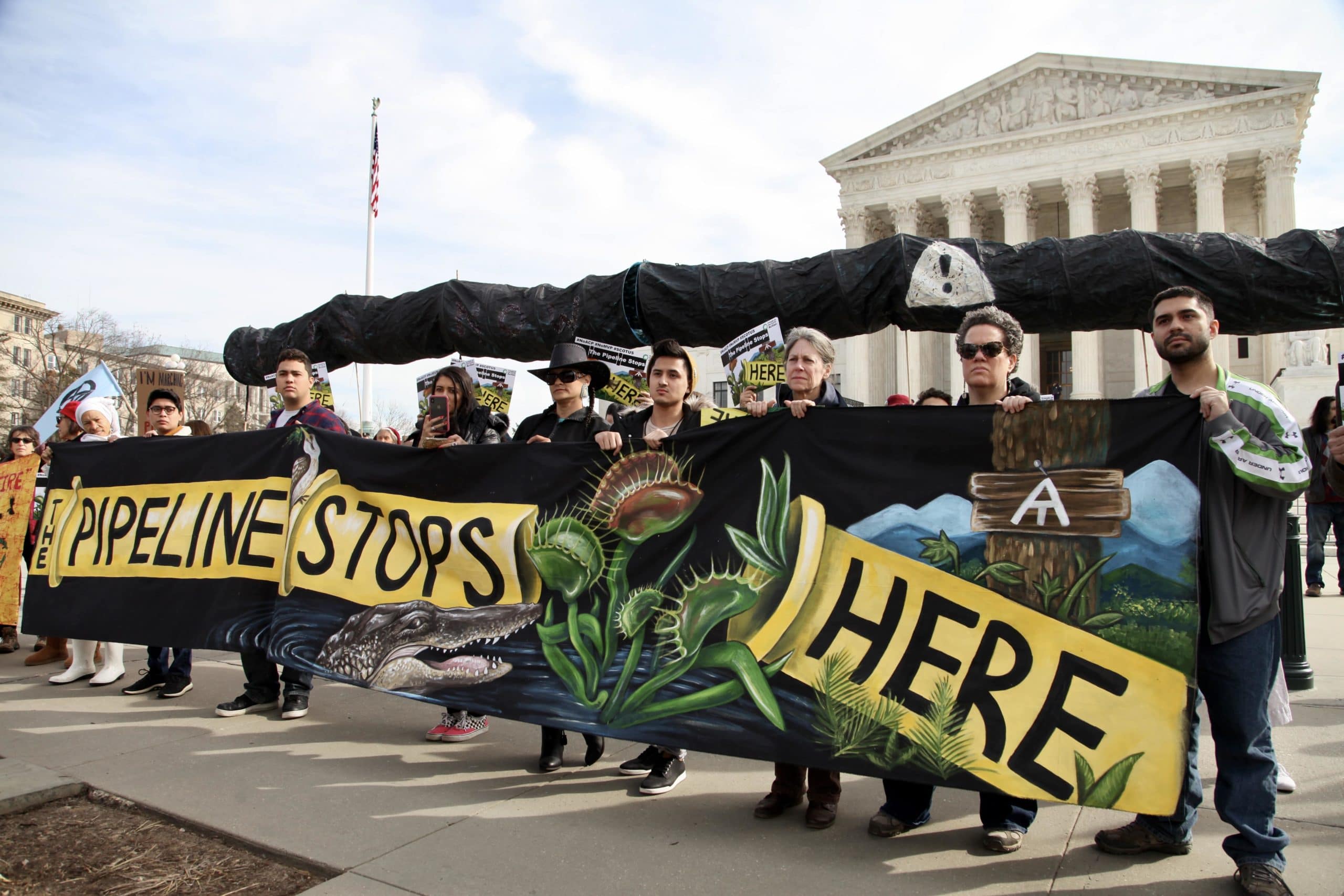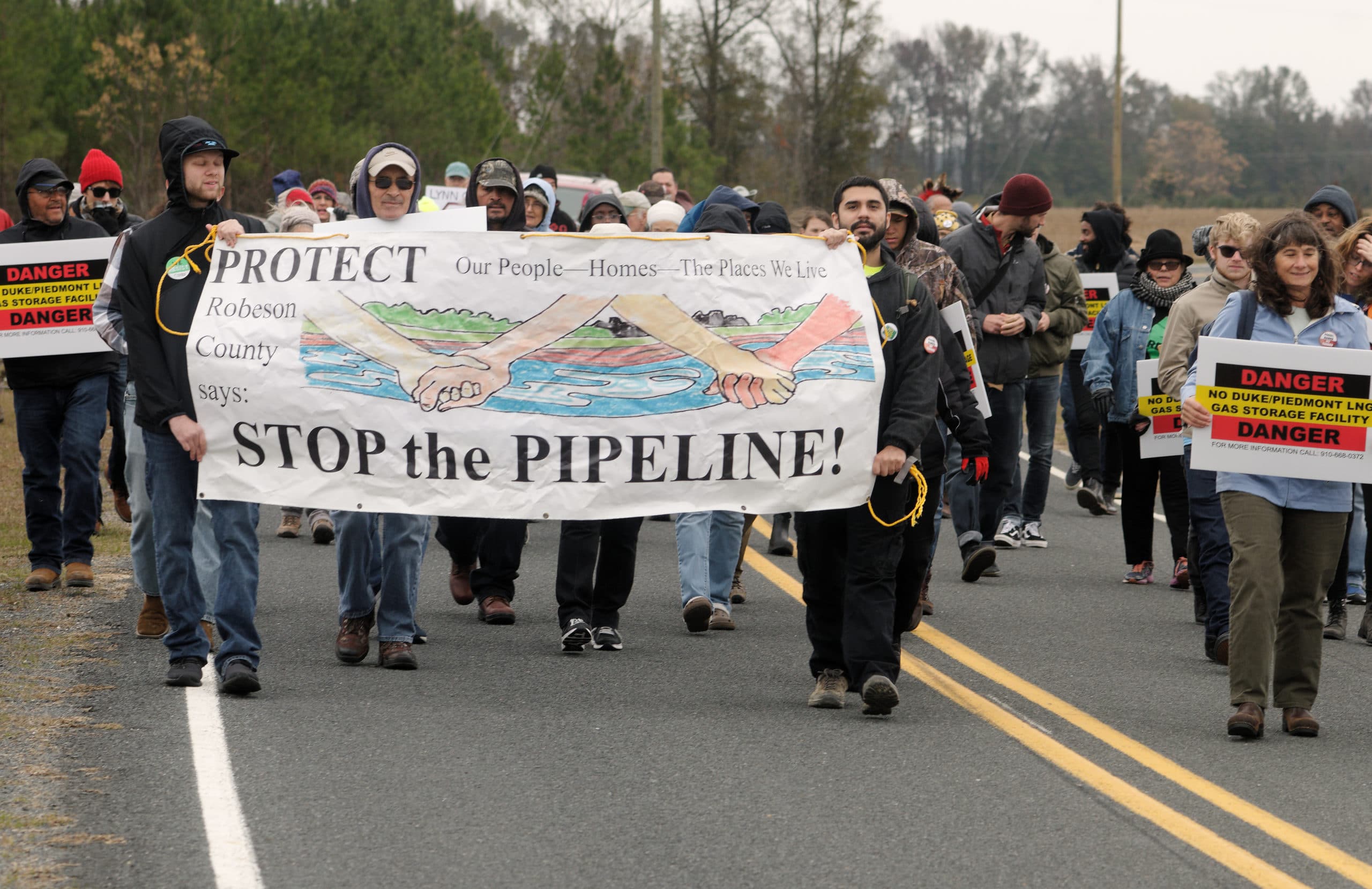Protecting North Carolina Communities
If completed, the Atlantic Coast Pipeline, or ACP, would carry fracked gas along a 600-mile route from West Virginia through Virginia, North Carolina, and South Carolina — and would devastate communities, cultures, ecosystems, and climate along the way.
This pipeline would require 38 miles of mountaintop removal and carry enough fracked gas to generate over 67 million metric tons of climate pollution annually — the equivalent of 20 U.S. coal plants. It would damage farm and forest land, cause habitat loss and fragmentation of wildlife, and diminish the recreational value of natural areas.
The ACP also serves as the poster child for environmental racism. It would disproportionately harm poor, African-American, and Indigenous communities. Compared to their statewide numbers, Native Americans are over-represented by a factor of ten along the North Carolina section of the pipeline route. One of the largest fracked gas compressor stations ever to be built is set to be located in Union Hill, an African-American community of great historical and cultural significance to Virginia.
Confronted with extensive legal and regulatory challenges, the ACP is significantly behind schedule and over budget, and faces fundamental challenges to its financial viability. This project is financially and environmentally toxic and must be dropped.

This project ended because of the activists taking to the streets and making it clear that we will not stand by while fossil fuel projects poison the bodies, land, air and water of Indigenous, Black and Brown communities.

This victory shows that the fossil fuel industry is in its last gasps, clinging to anything to remain viable.

Yesterday, I was arrested outside the Supreme Court alongside nine other activists and pipeline fighters for taking a stand against the Atlantic Coast Pipeline.
Learn more:
- The National Congress of American Indians, Support for Meaningful Tribal Consultation in Accordance with Applicable Laws to Identify and Mitigate the Adverse Impacts of the Atlantic Coast Pipeline on Affected Indian Tribes
- Oil Change International Report, Burning the Gas ‘Bridge Fuel’ Myth
- NC Native Environment, Deep Dive into Atlantic Coast Pipeline
- Ryan Emanuel, Flawed Environmental Justice Analyses
Today, North Carolina Governor Roy Cooper issued Executive Order No. 292, “Advancing Environmental Justice in North Carolina."
Following comments from Governor Cooper about the need for an independent redistricting commission to secure equitable voting throughout North Carolina, a diverse group of people and organizations that reflect the state’s demographics are pushing for elected officials to meet Cooper’s call.
Friends of the Earth filed a complaint with the U.S. Environmental Protection Agency (EPA) Office of Civil Rights alleging that North Carolina’s Department of Environmental Quality’s (NCDEQ) fails to adequately regulate the dry litter poultry industry illegally discriminates against Native, Black and Latino communities.
